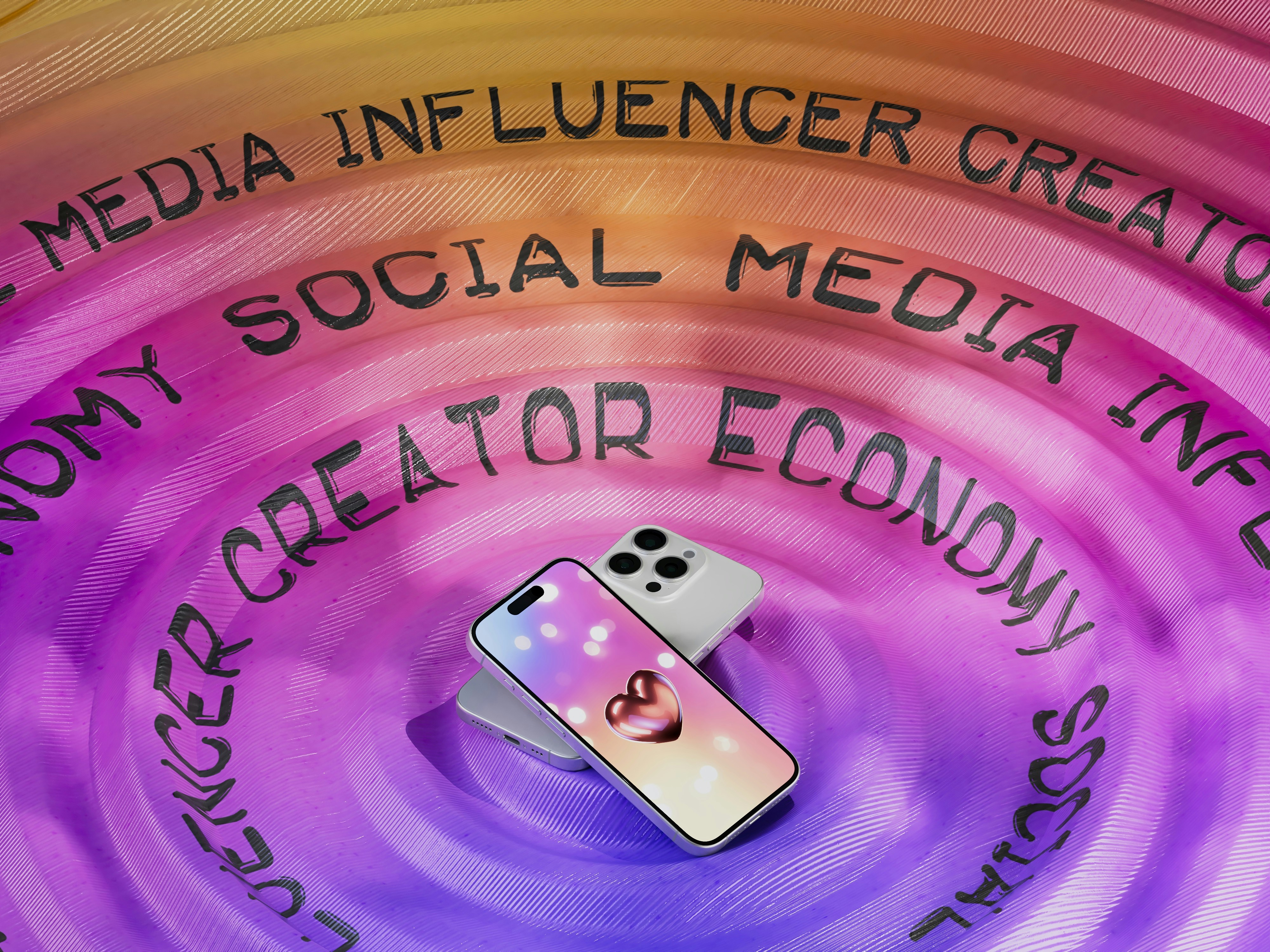The Emotional Trade-Off: Experience Life vs. Finances Online
In an age where social media dominates our daily lives, the pressure to curate experiences and maintain a perfect image can lead to an emotional tug-of-war between authentically living our best lives and pursuing our financial goals. As captivating moments are documented and shared, our personal finances often suffer in silence—the financial toll taken by such pursuits can be staggering. Understanding this emotional trade-off is essential for anyone looking to navigate the turbulent waters of modern finance while remaining true to oneself.
Emotional Currency: Understanding the Value of Experience
The modern economy encompasses more than dollars and cents; it includes emotional currency. This fascinating concept highlights how the value of experiences can sometimes outweigh financial concerns, prompting individuals to make decisions based on emotion rather than necessity. For many, social media has amplified this phenomenon, fostering a culture where "experiences" become pivotal to our identities.
Consider the last time you opted for brunch at an upscale café with friends over a budget-friendly meal at home, all for the sake of a scroll-stopping photo for Instagram. It's easy to let emotion drive financial decisions. This emotional currency can lead us to invest heavily in experiences to enhance our social media presence, creating a delicate balance between authentic living and financial responsibility.
Understanding the impact of emotional currency is a great first step towards smarter financial choices. By learning to recognize when emotions drive spending, we can shift our focus back to authentic experiences that contribute to our well-being without breaking the bank.
The Allure of Instant Gratification in a Social Media World
With constant access to social media, the impulse for instant gratification is amplified. The quest for likes, shares, and comments can lead to overspending on trendy experiences, new gadgets, or even spontaneous travel plans. But how do we balance that allure with a commitment to financial goals and savings?
Acknowledge these feelings and recognize how they relate to deeper psychological triggers. According to research by the American Psychological Association, many individuals derive happiness from shared experiences. However, chasing likes may lead to temporary satisfaction while compromising long-term financial stability.
Crafting Your Financial Narrative
To combat the pull of social media-induced spending, it's essential to craft your own financial narrative. This storytelling approach lets you harmonize your spending habits with your core values. Begin by outlining your financial goals—perhaps saving for a home, paying off student loans, or traveling to a bucket-list location.
Once you have clarity, you can look for experiences that resonate with those goals. You might choose to channel your resources toward lower-cost or even free experiences—think of potluck dinners with friends or exploring local parks. This mindset shifts the focus from finance as a restriction to financial decisions that align with values and offer fulfilling experiences.
For further insights on cultivating a winning money mindset, check out our post on psychological wealth.
Mindful Spending: Regaining Control of Your Finances
Mindful spending is a powerful tool for regaining control. Before impulsively whipping out your card, take a pause. Ask yourself whether the purchase creates value and aligns with your financial aspirations. Incorporate techniques like the 30-day rule: delay significant purchases for a month to evaluate if you still desire them after the initial excitement fades.
Moreover, tracking your spending can illuminate patterns of emotional decisions. You may discover specific triggers that lead to overspending, enabling you to confront them directly. For instance, if you often splurge when feeling stressed or uninspired, consider alternative outlets—perhaps engaging in hobbies or volunteering in the community.
When it comes to emotional spending, investing in mindfulness can cultivate better habits. For further reading on making financially savvy choices, our guide on transforming financial habits with emotional intelligence offers valuable strategies.
The Distinct Role of Digital Nomadism in Financial Choices
The rise of remote work and digital nomadism has reshaped the landscape of personal finance. The allure of exploring foreign cultures while maintaining an income can sometimes pit experiences against the need for financial prudence. While living as a digital nomad enables exploration, it also presents unique financial challenges that require planning.
To fully embrace this lifestyle, consider creating a budget that accounts for fluctuations in living costs across different regions. Additionally, focus on cultivating skills that enhance your earning potential while traveling—consider online courses or freelance projects that align with your interests.
Transform your travels into an investment by engaging in local experiences and investing in your surroundings. Investing in third-world economies through ethical local ventures can be both fulfilling and financially beneficial. Research platforms such as Airbnb Experiences, which can elevate income through organized excursions, adding value to your travel while keeping your finances in check.
Explore your passions with our article on mastering wealth management while traveling.
Embracing Financial Resilience in Personal Finance
It’s crucial to build a financial safety net that balances spontaneity and stability. This approach is known as financial resilience, and it allows individuals to weather emergencies and spontaneous experiences without losing control of their finances.
Start by establishing an emergency fund that covers three to six months’ worth of living expenses. Beyond that, consider investing aggressively in areas that resonate with your passions. For example, investing in yourself—by developing life skills or continuing education—can lead to both emotional fulfillment and financial security.
Additionally, consider exploring the nuanced relationship between financial literacy and emotional intelligence in investment choices. Knowing when to hold back and prioritize your future self is critical. If this resonates, don’t miss our post on investing in your future self.
Investing for Experiences and Learning
Similar to traditional investing strategies, successful wealth accumulation revolves around harnessing tangible assets. However, subjective investments, such as upskilling through workshops or experiences, have unique benefits. Assess your skills and consider ways to leverage them in the market, leading to more financial independence in the future.
At times, these alternative investments may lead to unexpected outcomes. Consider classes in art, cuisine or even coding—these investments can yield dividends, directly tying your financial decisions to enriching experiences.
Ponder the emotional component of these experiences. Remember that every investment needs a balance—exploring alternative investments as a way to connect with cultural narratives can both fulfill you and offer a different avenue for growth. For insights on such strategies, our article on cultural narratives in finance delves deeper.
The Imperative of Balancing Authenticity and Financial Goals
Social media fosters a culture of competition and perfectionism that can lead to financial neglect. However, it's essential to assess what is truly important to you. Developing a consistent routine can bring stability to your finances while allowing you to enjoy meaningful experiences. By keeping your spending in check and targeting specific priorities, you can navigate the emotional landscape of social media influence.
Building a Supportive Financial Network
Surround yourself with like-minded individuals who share your commitment to financial well-being. Engaging in group workshops—or even joining forums online—can be extremely beneficial. These communities may provide accountability, new ideas, and friendship.
If you're interested in leveraging your network for financial success, consider the community projects highlighted in our blog, specifically discovering profitable local development projects.
Being part of a financial community where you can openly discuss your experiences ensures that you're not navigating this complex journey alone, and encourages collective growth.
Next Steps: Finding Your Financial Authenticity
Navigating the emotional trade-off between personal finance and the curated realities of social media requires patience and self-awareness. Embrace authenticity by making conscious choices that align with your values, while understanding that emotional spending is a common struggle.
Here are some practical steps you can take moving forward:
-
Identify Your Values: Recognize what experiences truly matter to you. Create a list of priorities—these will serve as your guiding principles in future financial decisions.
-
Create a Budget: Outline your financial responsibilities and free up funds for experiences that align with those values. Aim for balance; create a financial plan that allows for spending on experiences while making room for savings.
-
Invest in Yourself: Allocate resources towards skills that can enrich your life and potential income. It’s a form of self-care that tends to pay dividend ten-fold.
-
Mind Your Network: Find accountability partners or communities that can support your journey towards financial wellbeing. Connect with individuals through social media or local meet-ups, focusing on shared financial goals.
-
Reflect Regularly: Conduct regular reviews of your budget and expenses. Acknowledge emotional triggers that lead to unnecessary spending.
-
Practice Gratitude: Maintain a gratitude journal to reinforce the positives in your life, reducing the impulse to seek validation from financial spending.
Navigating the emotional trade-off of finance and experiences is not easy, but with a clear understanding and intentional practices, achieving that balance is entirely possible. Remember, it's about living authentically and making decisions that uplift both your finances and spirit.












